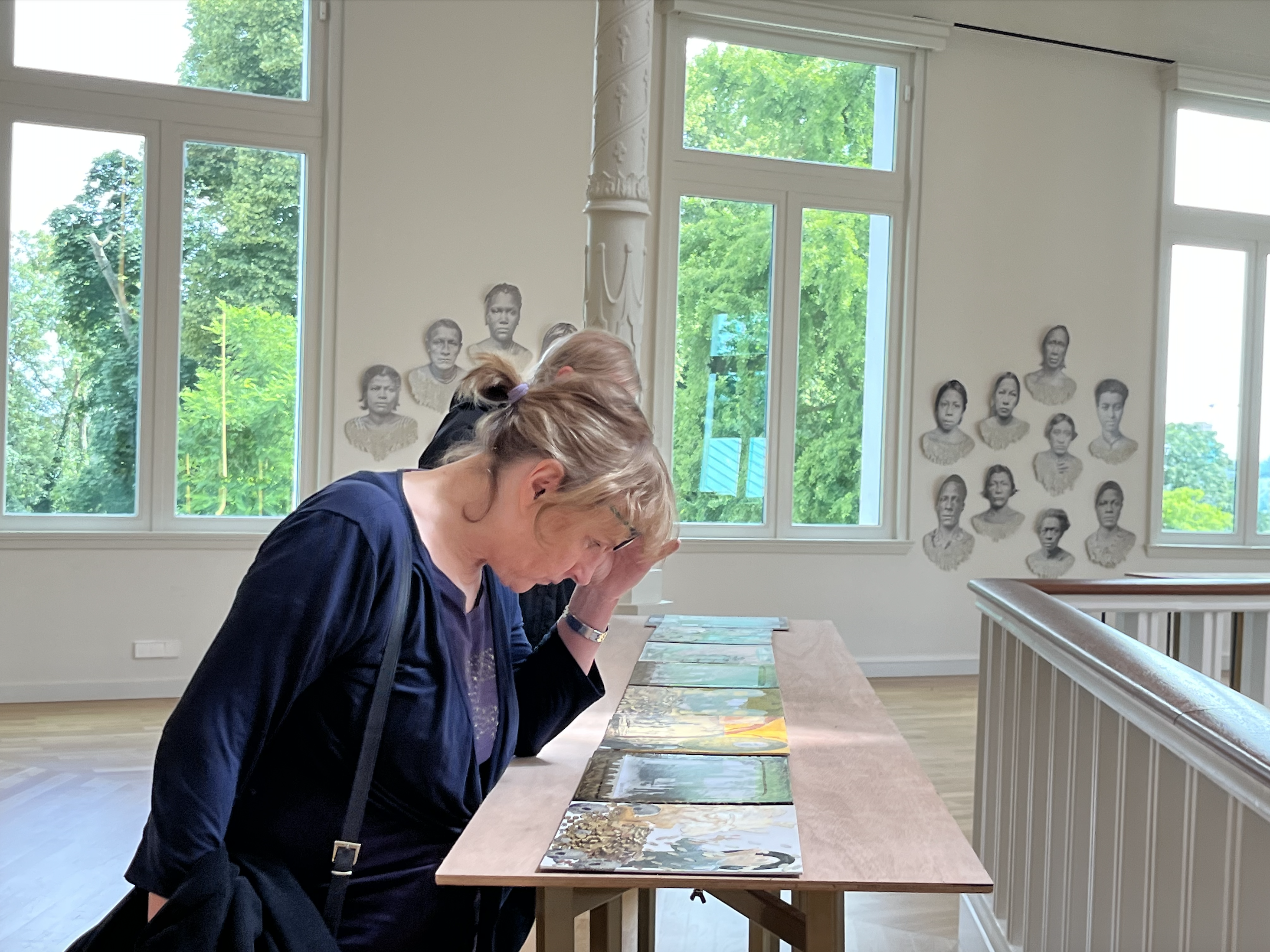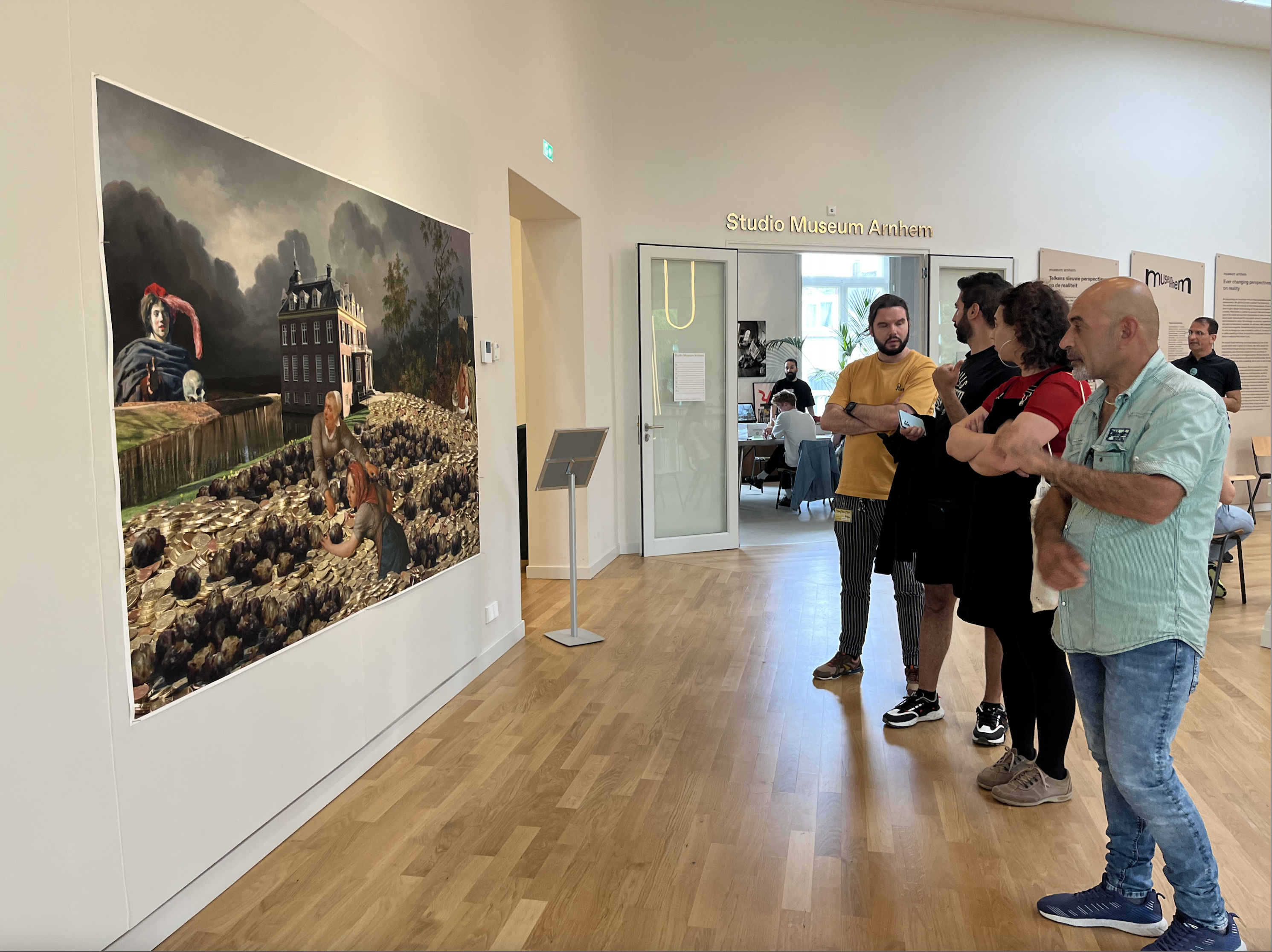About Mapping Colonial History (MCH)
A transdiciplinary - cross continental - cross-cultural project healing the World through Culture
Who We Are and Our Work
Mapping Colonial History (MCH) is a global initiative that examines how colonialism fundamentally shapes and pervades all dimensions of existence - from bodies, minds, and spirits to ecosystems, knowledge, and time. Through interdisciplinary collaborations anchored in indigenous knowledge systems, the arts, sciences and research, we trace how colonial systems of control perpetually reproduce themselves through interwoven mechanisms of violence and dispossession, while simultaneously erasing both their own operations and alternative ways of being.
Our work reveals how colonial ways of thinking and operating persist and evolve - from personal and communal experiences to worldwide power structures - working through territorial occupation, resource extraction, cultural erasure, knowledge suppression, environmental devastation, and the very categories through which reality is understood and experienced. By bringing together diverse knowledge holders and practitioners, MCH creates spaces for understanding, healing, and resistance that honor multiple ways of knowing and being in relationship with each other and the earth.
Through this lens, our key interventions focus on:
Systemic Analysis: Mapping how colonial systems of control continuously adapt and change at every level - from individual lives and communities to global systems - while maintaining their fundamental grip on existence.
Historical Documentation: Uncovering suppressed histories and knowledge systems while revealing how colonial ways of thinking and operating shape "official" historical narratives and concepts of time itself.
Interconnected Analysis: Demonstrating how colonial systems simultaneously operate through multiple, interwoven mechanisms - from psychological and spiritual violence to systemic injustice, environmental devastation, and economic exploitation. These mechanisms reinforce each other to maintain structures of inequality and oppression.
Transformative Initiatives: Developing decolonial projects that work across all aspects of life, centering reparatory justice and collective healing while recognizing that resistance must engage with both material and knowledge-based forms of colonial violence. This includes addressing historical harms and their ongoing impacts through community-led approaches to restoration and repair.
Amplifying Resistance: Creating spaces for marginalized knowledge systems and practices of resistance while remaining vigilant about how colonial systems appropriate and weaponize resistance efforts (for example, through institutions adopting "anti-racist" language while perpetuating racist policies, luxury brands appropriating Indigenous designs while displacing Indigenous communities, using token representation to avoid systemic change, implementing surface-level diversity without changing power structures, and transforming collective liberation movements into individual success stories that undermine community organizing).
Through exhibitions, reparatory projects, symposiums, publications and educational programs, we create spaces for understanding, healing, and resistance that reveal how colonial ways of thinking and operating fundamentally structure our reality while nurturing collective modes of resistance and alternative ways of being that challenge this structuring at its core.
Below are a few images of some of our activities:
![]()
![]()
Perfomance by musician Alfian Emir Adytia at Museum Arnhem during the opening of Inheritance - Mapping Colonial History # 2
![]()
![]()
![]()
![]()
![]()
![]()
![]()
Mapping Colonial History (MCH) is a global initiative that examines how colonialism fundamentally shapes and pervades all dimensions of existence - from bodies, minds, and spirits to ecosystems, knowledge, and time. Through interdisciplinary collaborations anchored in indigenous knowledge systems, the arts, sciences and research, we trace how colonial systems of control perpetually reproduce themselves through interwoven mechanisms of violence and dispossession, while simultaneously erasing both their own operations and alternative ways of being.
Our work reveals how colonial ways of thinking and operating persist and evolve - from personal and communal experiences to worldwide power structures - working through territorial occupation, resource extraction, cultural erasure, knowledge suppression, environmental devastation, and the very categories through which reality is understood and experienced. By bringing together diverse knowledge holders and practitioners, MCH creates spaces for understanding, healing, and resistance that honor multiple ways of knowing and being in relationship with each other and the earth.
Through this lens, our key interventions focus on:
Systemic Analysis: Mapping how colonial systems of control continuously adapt and change at every level - from individual lives and communities to global systems - while maintaining their fundamental grip on existence.
Historical Documentation: Uncovering suppressed histories and knowledge systems while revealing how colonial ways of thinking and operating shape "official" historical narratives and concepts of time itself.
Interconnected Analysis: Demonstrating how colonial systems simultaneously operate through multiple, interwoven mechanisms - from psychological and spiritual violence to systemic injustice, environmental devastation, and economic exploitation. These mechanisms reinforce each other to maintain structures of inequality and oppression.
Transformative Initiatives: Developing decolonial projects that work across all aspects of life, centering reparatory justice and collective healing while recognizing that resistance must engage with both material and knowledge-based forms of colonial violence. This includes addressing historical harms and their ongoing impacts through community-led approaches to restoration and repair.
Amplifying Resistance: Creating spaces for marginalized knowledge systems and practices of resistance while remaining vigilant about how colonial systems appropriate and weaponize resistance efforts (for example, through institutions adopting "anti-racist" language while perpetuating racist policies, luxury brands appropriating Indigenous designs while displacing Indigenous communities, using token representation to avoid systemic change, implementing surface-level diversity without changing power structures, and transforming collective liberation movements into individual success stories that undermine community organizing).
Through exhibitions, reparatory projects, symposiums, publications and educational programs, we create spaces for understanding, healing, and resistance that reveal how colonial ways of thinking and operating fundamentally structure our reality while nurturing collective modes of resistance and alternative ways of being that challenge this structuring at its core.
Below are a few images of some of our activities:


Perfomance by musician Alfian Emir Adytia at Museum Arnhem during the opening of Inheritance - Mapping Colonial History # 2
















